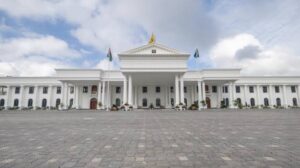The conflict between the Kenya Hospital Association (KHA) and the Nairobi Hospital management escalated on July 23, when KHA warned several banks, including NCBA, Cooperative, and ABSA, against disbursing a KSh 4.2 billion loan to the hospital.
KHA threatened legal action if the funds were released, citing concerns that the hospital’s financial woes could worsen under its current leadership, which has been accused of mismanagement, nepotism, and corruption.
NCBA, one of the targeted banks, has found itself at the center of this controversy, partly because of its past involvement in other high-profile financial scandals.
The bank, which is one of the largest financial institutions in Kenya, has had its reputation tarnished by several incidents involving corporate governance issues.
One of the most notable controversies was the alleged preferential treatment and favorable loan conditions extended to high-net-worth individuals, raising concerns about the bank’s transparency and ethical practices.
In this particular case, KHA has expressed concern that advancing the KSh 4.2 billion loan would place Nairobi Hospital at greater financial risk, given the alleged irregularities in leadership and governance.
They fear that the funds may not be used efficiently or transparently, based on past performance and the questionable procurement processes the hospital has engaged in.
KHA’s mistrust of the hospital’s board stems from several scandals, including a questionable ICT tender process that raised eyebrows within the association.
NCBA’s involvement, in contrast to their troubled history, has drawn attention.
Critics argue that the bank, despite its resources, has a history of entanglement in financial schemes that benefit elite clients while ignoring risks associated with lending to institutions under scrutiny.
The current scenario with Nairobi Hospital echoes similar concerns, where the bank’s decision to potentially lend a substantial amount to a hospital fraught with internal challenges could backfire.
Nairobi Hospital’s board, led by Dr. Chris Bichage, has defended the loan as crucial for upgrading the hospital’s infrastructure and maintaining its high standards of healthcare services.
However, their stance has been met with strong opposition from KHA, which insists that the board’s actions are driven by personal interests rather than the welfare of the institution.
The association believes that without a proper governance structure in place, approving the loan could have disastrous consequences for the hospital’s financial future.
This growing tension places NCBA in a difficult position, as it balances its interests in maintaining a lucrative loan agreement with the need to safeguard its reputation, which has been tainted by previous scandals.
The involvement of key national figures, such as Central Bank Governor Kamau Thugge and President William Ruto, underscores the severity of the dispute.
Both were copied in KHA’s communications, which called for immediate action to prevent the loan from being disbursed.
The potential legal battle between KHA, the hospital’s board, and the financial institutions involved will likely have significant ramifications for Nairobi Hospital’s future and the broader healthcare system in Kenya.





















Add Comment